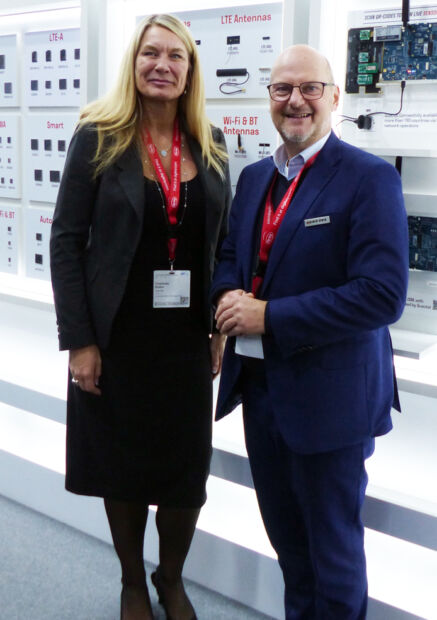IoT market changed in July, says Quectel
- November 23, 2022
- Steve Rogerson

The IoT market in July this year changed from a sellers’ market to a buyers’ marker, according to Dominikus Hierl, senior vice president of Quectel, speaking at last week’s Electronica trade show in Munich.
“There was a supply shortage in modules and chipsets, but that has been satisfied,” he said.
There were some regional variations, he said, with Europe being late to follow the trend, but the company saw a sudden drop in demand in China and the USA.
“The European market is quite stable,” he said.
On general trends, he said there was an uptake in 5G technology with huge customers in Europe exporting globally. The price of 5G modules is higher and they are mostly going into customer premises equipment such as routers that need high-speed connectivity. However, they are going into industrial IoT applications. For example, he said all the major car factories in Germany were using this.
For IoT as a whole, he said all the traditional sectors continued to grow such as telemedicine and smart meters. There are also new innovative applications such as dog trackers.
“There are different requirements between dog and cat trackers,” he said. “If the pet is mostly at home, you can minimise energy requirements. Cloud data can be used for dog health insurance purposes.”
In the USA, delivery robots are taking off and these need premium GNSS technology. “Europe is a little behind in this,” he said. “Premium commercial drones are also becoming a big issue.”
The big trend in China, he said, was for artificial intelligence for machine vision applications such as face and pattern recognition.
Charlotte Rubin, Quectel’s vice president of global marketing, said the company had seen a serious expansion for wifi modules, and it now produceds a combined wifi and Bluetooth module.
“A couple of years ago, we expanded into the antenna market,” she said.
At Electronica, it was showing its latest nine-in-one antenna combining cellular, wifi, Bluetooth and GNSS.




